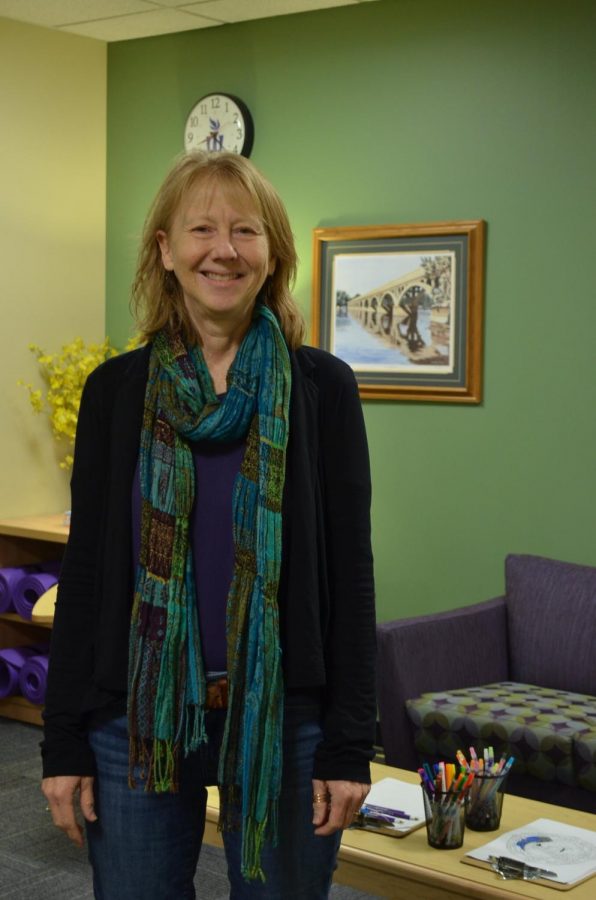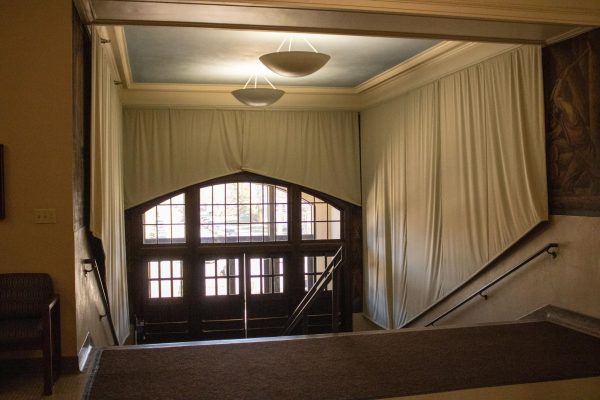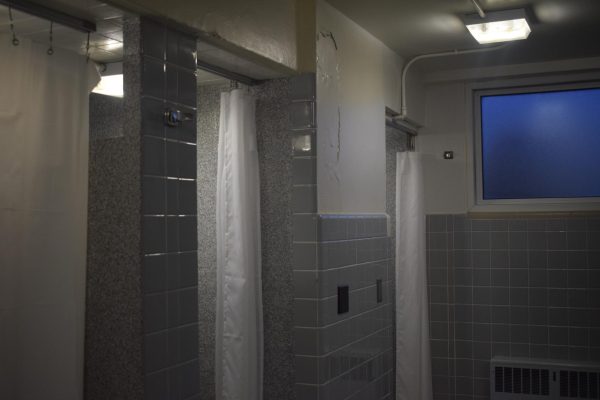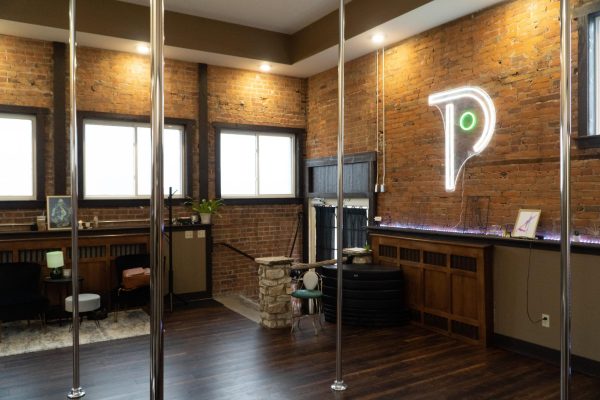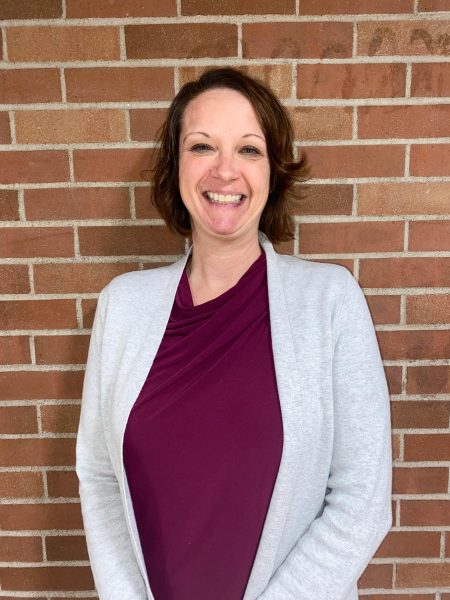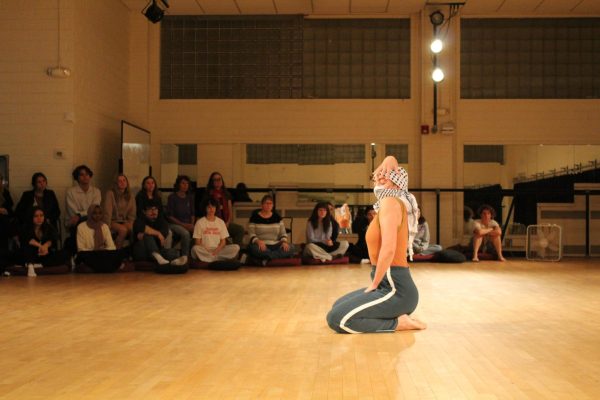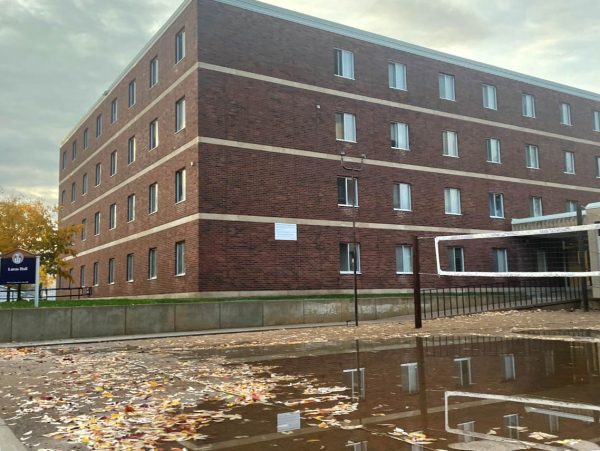Stress and anxiety seminar introduced
Eunie Alsaker, a counselor at Winona State University, stands in the Relaxation Room, IWC 267, where she runs the weekly new Stress and Anxiety Seminars which take place every Wednesday.
November 6, 2019
Winona State University is delivering a stress and anxiety seminar for the fall semester.
The seminar, titled “Stress and Anxiety in College,” had its first meeting on Tuesday, Oct. 29 in the Integrated Wellness Complex (IWC).
The seminar will continue to be offered weekly from 1-2 p.m., now switching to Wednesdays in the IWC’s Relaxation Room until Thanksgiving break.
The stress and anxiety seminar has been offered at Winona State by the Counseling and Wellness Services for several years.
Eunie Alsaker, staff member of the Counseling Services at Winona State and leader of the seminar, explained that over time it has become clear that students who seek individual counseling at Winona State often do so for stress and anxiety related issues.
“Because there are so many students who seek our services, we thought ‘how can we help them learn these skills in a more efficient manner,’” Alsaker said.
Alsaker continued, sharing that the team in Counseling Services found that the best way to communicate the skills needed to manage stress and anxiety to students who may not consider individual counseling was through events like the seminar.
The seminar’s second meeting on Nov. 6 from 1-2 p.m. will be titled, “Understanding Stress and Anxiety” and will focus on the physical side to these struggles.
Alsaker explained the meeting will be an overview of understanding stress and anxiety, including learning what one’s triggers may be, what contributes to negative stress, lifestyle habits and relationships.
Relating the event specifically to college life, the Nov. 6 event will also discuss sleeping patterns and study skills.
“If I am a procrastinator I’m going to be really stressed out if I’m doing [homework] late at night,” Alsaker said. “If I don’t know how to study, or when to study, or how much to study, those are contributing factors as well.”
The following meeting on Nov. 13 will dive further into how stress and anxiety can have a physical impact on people.
“Most people who are experiencing one or the other, at least a high degree of each, feel it physically,” Alsaker said. “Maybe it’s tense muscles, heart is racing, nausea, or it feels hard to breathe.”
The Nov. 6 event will look at ways to calm the physical central nervous system down in times of high stress or anxiety, so that greater control can be had over those heightened thoughts.
The session will also include breathing exercises and learning how to breathe in a different way during times of stress and anxiety to calm oneself down.
The final seminar event before Thanksgiving break will be Nov. 20 at the same time and place. The third and final session is called “Creating New Thoughts.”
“A lot of students say they ‘overthink things,’” Alsaker said. “I think of it as we get attached to a fear of something and assume that fear is going to happen.”
Alsaker said that there will be information at the session to begin coaching oneself to introduce kinder thoughts, ones more accurate than the fear-related thoughts that contribute to anxiety.
“We can say ‘wait a second, that’s a fear, not a fact, and how can I shift myself away from that thought,’” Alsaker said.
Alsaker made a point of emphasizing that stress and anxiety are two different things, but that the two simply share a similar skill set in coping mechanisms.
“Stress isn’t necessarily a bad thing,” Alsaker said. “Stress can be really motivating and positive, and it’s also inevitable.”
She went on to say that she often tells students that it is appropriate to feel stress in stressful situations – it’s simply how one responds to stress that is important.
The goal of the seminar as a whole is not to ‘get rid’ of stress and anxiety, but to offer ideas and strategies so that students do not feel defeated by them.
Alsaker also said that there has been a positive change surrounding the conversations on anxiety and stress in the last few years.
“I think that overall, our culture, particularly in this generation of college students, is becoming more comfortable talking about serious matters,” Alsaker said.
Counseling services has seen a tangible shift in the younger generation’s willingness to talk about their emotions and seek help, as there has been an increase in the number of students coming in to talk with counseling members.
“I think college is an excellent time to really take a look at some of those things that can change the quality of life,” Alsaker said. “Not just saying ‘well, this is who I am,’ [but] ‘this is who I am, and I have skills to live comfortably.’”
During the spring semester, a second round of seminars will be offered with variety in the time slots to accommodate students.
“If there’s a greater demand for these classes, then we could offer more,” Alsaker said.
Although this seminar takes place in the area as the Wellness Wednesday events that occur all school year, the Stress and Anxiety Seminar and Wellness Wednesday are not collaborative events.
“In the Health Promotion department, we try to theme the Wellness Wednesdays around what’s going on around campus,” Health Promotions Coordinator Katie Jensen said. “Toward the end of the semester, we’ll focus more about stress management.”
Those in the Counseling Services want students to feel welcome and know that they can leave the seminar events with new thoughts regarding stress and anxiety.
“This is part of working to de-stigmatize this,” Alsaker said.























































